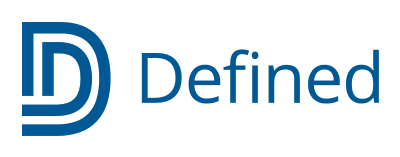3 Teachers, 3 Different EdTech Tools
This article dives into the real experiences of three teachers using three different tools, written in their own words.
Tool #1: Edthena
Written by Sarah, a professional learning coach from Colorado. Sarah’s school has a high population of ELL students and encourages a project-based environment.
EdSurge: What was the problem in your classroom or school that you were trying to solve when you implemented Edthena?
Sarah: To be honest, there was not necessarily a problem per se that we were trying to solve when implementing Edthena into our coaching practice. What we were aspiring to achieve was a meaningful and "organic" system for accelerating teacher practice that would complement our district coaching process. As research indicates, video analysis of one's own teaching practices is one such tool that can accomplish this acceleration in teacher behavior. Further, guided/coached video analysis is a meaningful way to scaffold teachers' reflective practices as they view their videos. Hence, our impetus for implementing Edthena was that of supporting teacher reflection through video coaching.
EdSurge: Describe how you used the product.
Sarah: Initially, we launched Edthena with our brand-new teachers. Each teacher with zero years of teaching experience is paired with a district Professional Learning Coach who supports them throughout the year in various capacities. One such system of support offered by our coaches is that of observing instruction and guiding the teacher through a reflection on their instruction. While this is a highly effective means of supporting teacher growth and affecting behavior and decision-making, the use of video further accelerates this process as teachers are able to "relive" their lesson by watching the video. Edthena broke through barriers of time, scheduling, and the feeling of being "rushed" during a reflecting conversation. Moreover, Edthena allowed both the teacher and the coach to focus on one aspect of instruction, watch the video, comment on this element, and set goals. The asynchronous nature of the platform allows for not only flexibility but also the ability to focus solely on the video without feeling rushed. Our district now uses Edthena to support staff development in schools where administrators focus on specific elements of instruction and colleagues can view and comment on one another's practice to enhance learning.
EdSurge: What worked and what didn’t?
Sarah: This product has had a tremendous impact on shaping teacher behavior and inevitably affecting student achievement. Teachers who use Edthena are gifted with the opportunity to refine their craft by focusing on elements of their instruction, soliciting feedback from coaches or colleagues on that instruction, and then making adjustments based on feedback. This tool is navigable, user-friendly, and an efficient means of accelerating teacher growth in our district.
Tool #2: Kaltura
Written by Russ, a media manager at a university in Delaware. Russ’s University has a high population of low-income students.
EdSurge: What was the problem in your classroom or school that you were trying to solve when you implemented Kaltura?
Russ: Online learners make up a large percentage of our student population and students learning at a distance demand video and multimedia content in their courses. Before moving to Kaltura instructional video content was spread across multiple free sites like YouTube and Vimeo. There was no policy that governed video use, no unified technical platform, and no way to control branding or evaluate the quality of video instruction. Each instructor managed their own content, and there was a strong desire for one unified platform that provided tools to all faculty and students as well as providing a central location for analytics, branding, and vetting content. We sought out a private online video platform that integrated with our LMS (Blackboard) and would provide a cohesive experience for all of our users.
EdSurge: Describe how you used the product.
Russ: Kaltura was implemented across the entire university community roughly 3 years ago. Our primary use is from within the LMS - Kaltura provides a suite of video and multimedia tools that can be used from virtually any content area within Blackboard. Video is frequently used for announcements, discussion boards, instruction, and even graded assignments within Blackboard via the Kaltura media tools. To date we have over 27,000 videos stored in the back-end of Kaltura, almost all of which is user-generated content from within Blackboard (All users, faculty and students alike, have access to the same suite of tools.) We also use Kaltura for a public-facing video portal and for live-streaming events like guest speakers, music festivals, and commencement.
EdSurge: What worked and what didn’t?
Russ: Kaltura is constantly changing and updating tools and features. At the beginning of our launch, the live-streaming tools were extremely cumbersome and difficult to work with. There were also several java and flash-based tools that gave users difficulty, particularly the Java-based screen recorder. All of these software tools have been improved, upgraded, or replaced by Kaltura to provide a better technical and more user-friendly experience. There are still other areas that we hope to see improved in the future - better analytics with more granular control is one example. The back-end administration portal is still flash-based and we hope to see that move to an HTML5-based application in the future as well.
Tool #3: Defined Learning
Written by Meghan, a science and social studies coordinator at an elementary school in Virginia.
EdSurge: What was the problem in your classroom or school that you were trying to solve when you implemented Defined Learning?
Meghan: Our school division was looking for a way to scale PBL in more schools. We found that "problem finding" was difficult for teachers. Having a set of scenarios readily available, aligned to standards, and accompanied by footage from professionals, made PBL more accessible to teachers from a wide variety of ages and subject levels.
EdSurge: Describe how you used the product.
Meghan: Some teachers used the tasks as written, simply sharing the task with their students and executing it. Some teachers used the base idea as a springboard for their own PBL ideas. Some showed the videos in isolation, but most supplanted traditional instruction with a Defined Learning task.
EdSurge: What worked and what didn’t?
Meghan: Initially, teachers felt the tasks were not aligned with the curriculum. We were surprised to hear that! Providing an alignment chart at the division level and embedding it directly into the curriculum made a big difference. Training the Instructional Technology Specialists (ITS) at each building also gave a voice to the tool. They were readily familiar with the strategy of PBL and the tool itself. When they attended planning, they could mention an aligned task as a possibility.
Learn More About Career Connected Learning @ Defined
Discover how Defined Learning helps students build future-ready skills through project-based learning, STEM, and career exploration.

